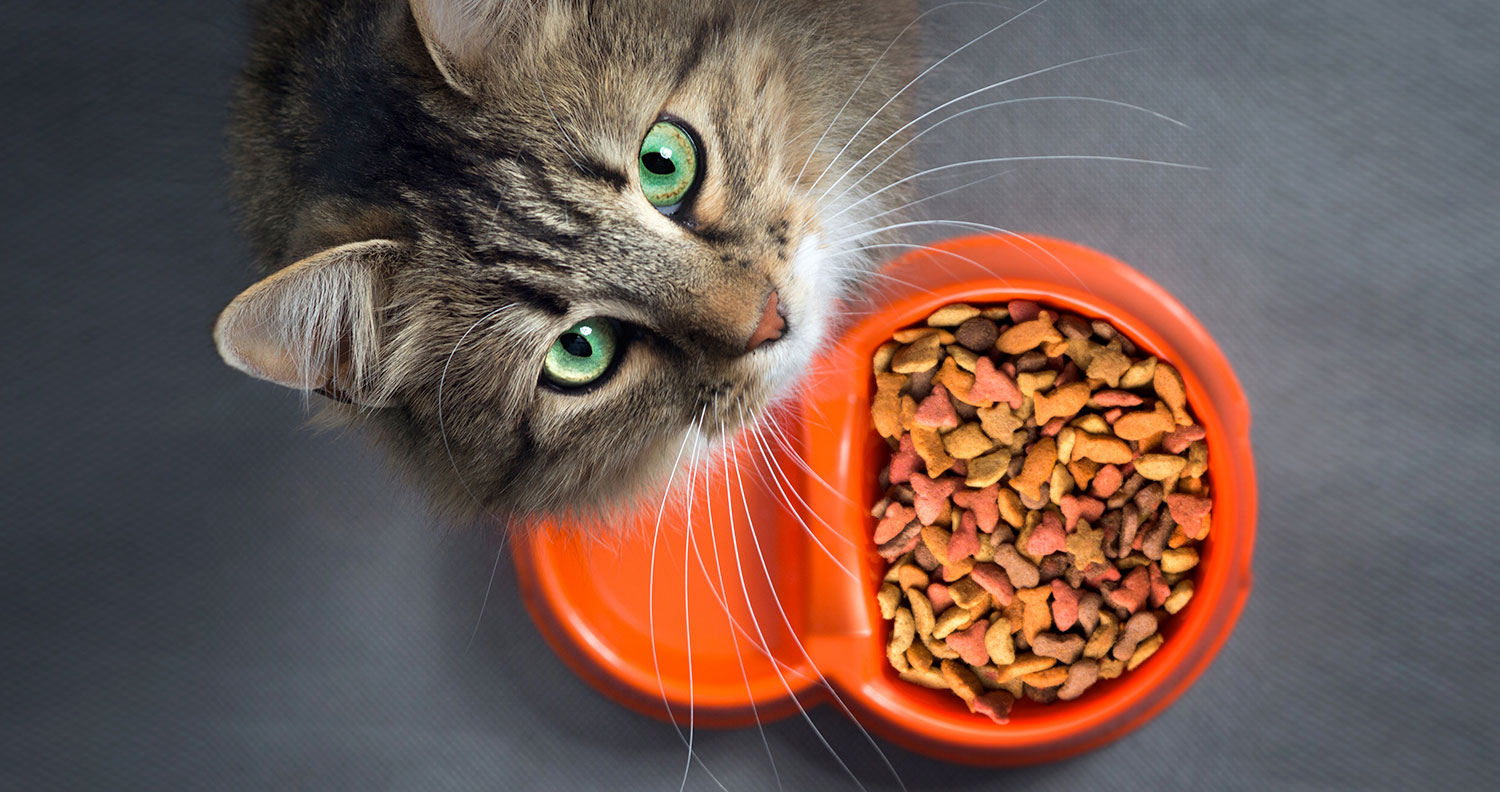What Can Cats Not Eat? Protect Your Cat From Toxic Foods
Share:

What can cats not eat? Many human foods are toxic to cats. Onions, garlic, chocolate, and caffeine products can all be problematic for your cat’s stomach. Various fruits, such as sultanas and grapes, and a host of nuts might present a serious issue for your kitty.
Our furry feline friends aren’t just pets, they’re part of the family and that’s why we need to know what cat’s can’t eat.
When Mr Fuzz is sitting on the arm of your chair, watching you eat your dinner with those big, beautiful eyes, it’s tempting to sneak him just a little of your food.
Unfortunately, as much as we love to treat our cats to the occasional morsel, the food that human beings eat isn’t always suitable for cats. There are dozens of products out there that are perfectly fine for us to eat but could easily result in a trip to the vet for your kitty.
So, what can cats eat and not eat?
Well, that’s a big question, with a lot of answers. To help you protect your kitty from dangerous delicacies in their diet, we’ve put together this complete guide.
Let’s get cooking.
What Foods Can Cats Not Eat?
There are tons of foods out there that are excellent for your cat, including milk made just for their sensitive stomachs, crunchy kibble, and even vet-recommended meals. However, there are also plenty of foods that just don’t work with your cat’s digestive system.
For instance, while cat food and dog food might seem very similar (especially in smell), they don’t have the same unique nutrients. Cats need 41 essential nutrients in their food, and dog food rarely contains the right proteins and fatty acids to keep your kitty healthy. While the occasional nibble from Bruno’s bowl won’t hurt, a regular helping could lead to serious malnourishment.



Get 30% off and FREE shipping on cat food!
U.S.A. only
To Find out why we recommend chewy.com, click here
Cats often beg and plead for food, the food that you’re eating – but just like children, they rarely know what’s best for them. The main reason to discourage your cats from eating “people” food, is that there are so many meals that are dangerous to cats.
In our infographic at the bottom of the page you can see some of the most problematic poison foods for your cats and what you can replace them with if you’re looking for an extra special treat.
What Human Foods Can Cats Not Eat?
Human foods come with different “danger levels” for your cat but you might well be asking ‘what can cats eat that is not cat food’ and some of those might be human foods.
As we mentioned above, the odd nibble of a bowl of dog food probably won’t send your cat to the emergency room, but it’s not suitable for delivering the nutrition your moggy needs.
On the other hand, there are certain foods that are deemed poisonous to cats. These are the products that you should never feed your four-legged friend, no matter how much they beg and plead. Here’s our checklist for the question: “What human food can cats not eat?”:
What Can Cats Not Eat: Problem Foods for Cats
Some cats beg and plead for a taste of human food – particularly when they see you enjoying your meal. I have two cats in my household who watch me like a hawk every time I sit down for a meal. However, giving your cat scraps from your table is a dangerous practice that you should always avoid.
Remember, your cats are already getting the nutrients that they need from their premium cat food. Any extras that your kitty consumes could mean that they don’t have an appetite for the meals they really need. This means that feeding your cat any human food can be problematic in its own way. Some other foods to avoid include:
Other Household Items that Are Dangerous for Cats
Keep in mind that many of the foods commonly found in your pantry, from nuts and corncobs, to mushrooms, can be dangerous for your cat. Your kitchen cupboards should remain a cat-free place at all times. However, if you’re working on making your home a poison-free zone, there are some other products that you should be locking away too.
For instance, medicines might be crucial for you and your family, but they’re very problematic for your cat. Painkillers, cold and flu medication, diet pills, and even vitamins can make your kitty seriously unwell.
The only time you should give your cat any medicine is when it’s under the instruction of a vet. The medicines that we give to cats are very different than the ones that you’ll get from a human doctor. They’re designed specifically to suit the internal workings of your kitty’s stomach. If you think that your cat needs any kind of medical treatment, take him to a vet first.



Get 30% off and FREE shipping on cat food!
U.S.A. only
To Find out why we recommend chewy.com, click here
It’s also worth noting that you should always get a vet’s advice before giving your cat any over-the-counter medications for things like fleas and worms. Speaking to a vet will help you to determine which medicines you should avoid. Flea and worm products for dogs also aren’t safe for your cats. Canine systems work very differently to your feline’s body!
Aside from medicines, it’s also important to lock household cleaners away too. Many common household items are poisonous to kitties, even if they look safe on the surface, for instance:
It probably goes without saying but if you have any household cleaners around the house, like bleaches, pesticides, and varnishes, these should always be locked away out of your cats reach. Even the slightest amount of these substances can cause serious problems for your cats.
Tips to Prevent Your Cat from Eating Dangerous Foods
So, if you’re having problems keeping your cats away from the foods that could harm them, what can you do? After all, knowing what cats can can not eat is only the first step. Once you’ve got your list, you also need to avoid breaking down under your cat’s pleading gaze.
My best advice is that if you feel the urge to give your cat a sample of your own food, then consider looking for treats that are safe for them to eat. Although most human foods just aren’t designed for cats, there are a few things you can feed your moggy that won’t cause too many problems. For instance:
Obviously, the best food to give your kitty when he’s begging for treats is his own! You spent all that time searching for the most nutritious cat food on the market for a reason, after all.
You can also top your kitty’s regular meals up with some bonus treats too. For instance, cat grass is an excellent alternative to actual grass and other plants from around your home that could be toxic to kitties. Alternatively, there are tons of delicious extra treats out there – Temptations are a big favorite of my cats, but you can do your own research to track down some alternatives.
Protecting your Cats from Dangerous Foods
You’re not just the person who owns your cat, you’re their protector. Just like a child, a cat looks to you for guidance and help to stay fit and healthy. That’s why it’s so important to ensure that your kitty is getting the right food for his or her needs.
Aside from switching potentially dangerous treats to healthier ones, there are some other steps that you can take to defend your cat from poisonous snacks. For instance:
Be extra careful around holiday periods and when people come to visit. When the home is hectic, it’s easy for bits of food to fall on the floor and be picked up by your cats. The best thing you can do is tidy up immediately after any spills.
What to Do If Your Cat Eats Toxic Food
With a little luck, the tips above will help you to avoid any horrible dietary events with your kitty. However, mistakes can happen. If you ever suspect that your cat might have eaten a food that’s bad for them, then you need to ensure that you know what to do.
Start by calling your vet for some specific advice. In some cases, your vet will tell you to keep a close eye on your furry friend and bring them in if they exhibit any symptoms. In other situations, you might need to take your cat straight to the surgery.
If your vet isn’t able to handle the situation, search for the nearest Pet Poison helpline online. This is often very useful if your cat is displaying symptoms like muscle tremors. If the poisoning is particularly bad, your kitty might need intravenous fluids, hospitalization, and monitoring for a few days.
Remember to give them plenty of love when they get home!
Good Luck!
Knowledge is power, particularly when it comes to knowing what cats CAN eat and understanding what cats can not eat.. The list above should give you an insight into which items you need to avoid so that you can protect your furry friend from danger.
Remember, keep human food away from your cat, and call your vet if you’re uncertain.






Get 30% off and FREE shipping on cat supplies!
U.S.A only
To Find out why we recommend chewy.com, click here
Affiliate disclosure : We Love Cats and Kittens is a participant in several affiliate programs including the Amazon Services LLC Associates Program, and the Chewy affiliate program. These are affiliate advertising programs designed to provide a means for sites to earn advertising fees by advertising and linking to products on their sites. If you click on links in our blog posts and articles we may be paid a commission.
Share:

